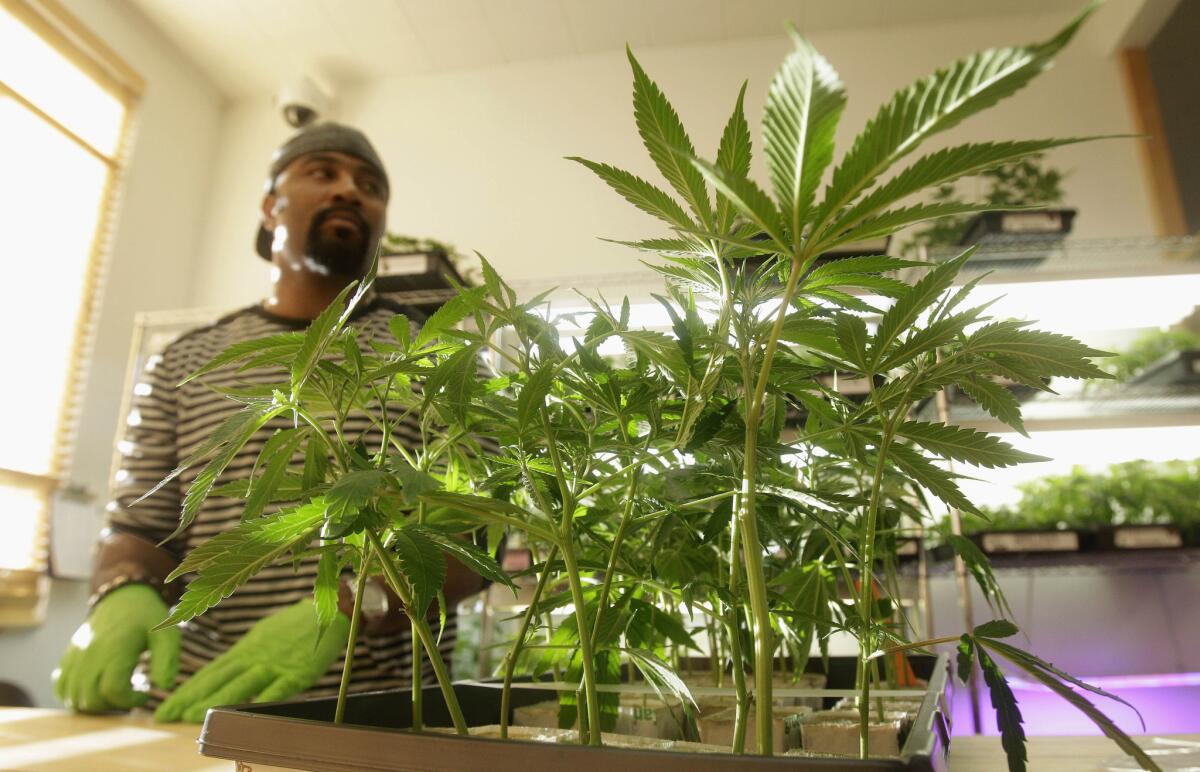New rules for medical pot

Although it was the first state to legalize medical marijuana, California is way behind other states in regulating it. The 1996 Compassionate Use Act provided little guidance on how the state could help ailing patients get the drug — or how to keep it out of the hands of those who weren’t entitled to it. In the absence of clear rules, medical marijuana has been haphazardly managed through local regulations, and has become relatively easy to obtain, with few safety strictures, by sick and healthy people alike.
Now, after years of fighting efforts to legitimize the cannabis industry, the League of California Cities and Police Chiefs Assn. have sponsored a bill designed to regulate marijuana more like a medicine.
SB 1262, introduced by Sen. Lou Correa (D-Santa Ana), has some common-sense provisions. It would require the state Department of Public Health to license growers and dispensaries, and to develop standards to ensure that products aren’t contaminated with bacteria, mold or chemicals. County health departments would ensure compliance, much as they do with businesses that make and sell food. The bill would allow local jurisdictions to permit or ban dispensaries.
The bill runs into trouble, however, when it tries to regulate doctors. The sponsors want to shut down “doctor mills,” where any walk-in who can concoct a medical excuse can walk out with a recommendation for marijuana. To tighten up, the bill would allow only a person’s primary care doctor or a specialist referred by that doctor to make a recommendation. The recommendation would be reported to the state Medical Board and would specify the strain of marijuana, the strength and the method of ingestion.
In theory these seem like logical steps. But marijuana is still designated a Schedule 1 controlled substance by the federal government, which does not recognize medical uses. Already some doctors refuse to recommend it because of the conflict with federal law and the lack of research on dosage and use; the bill’s requirement that recommendations or referrals be made by primary care doctors could make it harder for some legitimate patients to obtain it. What’s more, courts have ruled that physicians have a 1st Amendment right to recommend marijuana, but they could run afoul of the law if they were to give detailed instructions on its use.
The bill also would require any doctor who wrote more than 100 recommendations in a year to be audited by the state Medical Board. Why 100? An oncologist could reasonably issue two recommendations a week. State law says no doctor can be punished for recommending marijuana to a patient, so the audit seems more like an intimidation tactic than a legitimate enforcement measure.
Correa’s bill has problems, but it’s a start. Working with doctors and patient advocates, the sponsors should be able to develop a regulatory scheme that upholds the goals of the Compassionate Use Act while cracking down on abuses. Ultimately, though, it would be best if the federal government reclassified medical marijuana so it could be treated more like a prescription drug, complete with Food and Drug Administration oversight.
More to Read
A cure for the common opinion
Get thought-provoking perspectives with our weekly newsletter.
You may occasionally receive promotional content from the Los Angeles Times.






